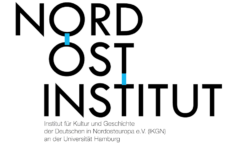Ambivalences of the Soviet
Diaspora Nationalities between Collective Experiences of Discrimination and Individual Normalization, 1953-2023
Research Network 2020-2023 funded by the Niedersächsische Vorab/Volkswagen Foundation
About the Research Network
Diaspora nationalities such as the Russian Germans and Soviet Jews were constituted as collectives through the common experience of repression and discrimination. At the same time, however, individuals of these groups experienced a normalization of their existence and, in many cases, remarkable social advancement in the years following Stalin's death. They were or became a part of the culturally and nationally diverse Soviet society.
We examine individual everyday practices, migration processes, memory of the late Soviet period, and the reconstitution of community after migration. Focusing on Soviet normalization in late socialism, three goals are pursued: Firstly, to comprehend the diverse histories of diaspora nationalities on the Soviet peripheries as central components of Soviet history. This will bring into focus the biographies of those Soviet citizens who have been largely neglected in previous research. Secondly, the project contributes to the current debate on the peripheries and rural areas in the late Soviet Union. Research in recent years has focused almost exclusively on urban contexts. The network asks about the transferability of concepts such as "Soviet consumption" to the Soviet village. Thus, it follows on from research on the Late Soviet Village - which mostly focused on the European regions of the Soviet Union - but expands it to the peripheries of the Soviet empire. And thirdly, the project points beyond the Soviet period to our immediate present using case studies of emigrants in Lower Saxony, community processes after emigration as well as memories of Soviet everyday life. The research network aims for a new perspective on the history of the post-Stalinist Soviet Union, everyday life on its periphery, and the afterlife of "Homo Sovieticus" in post-Soviet times.







